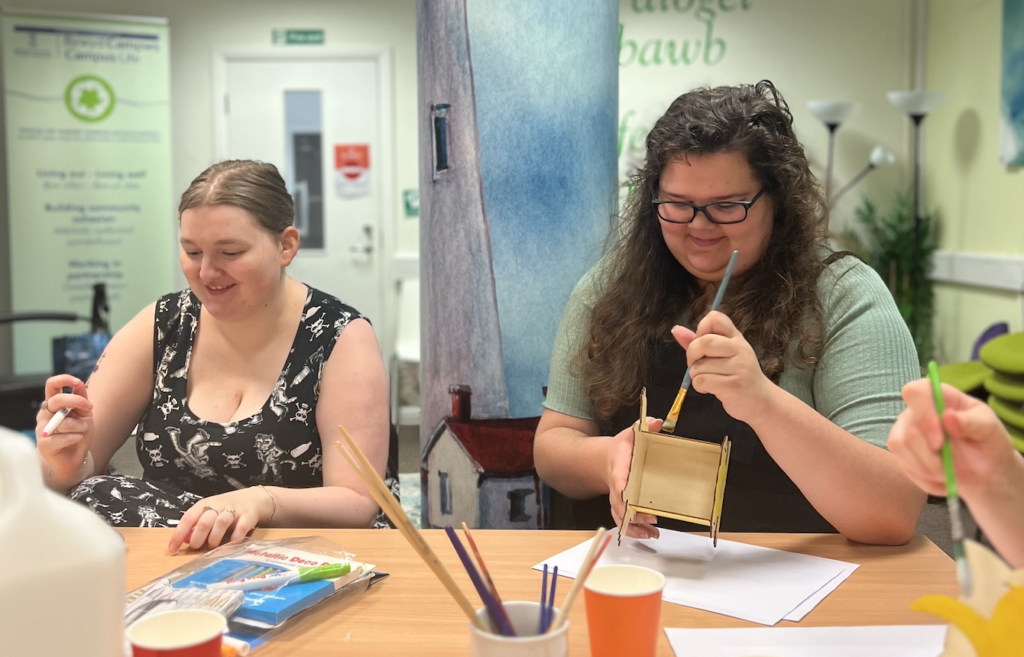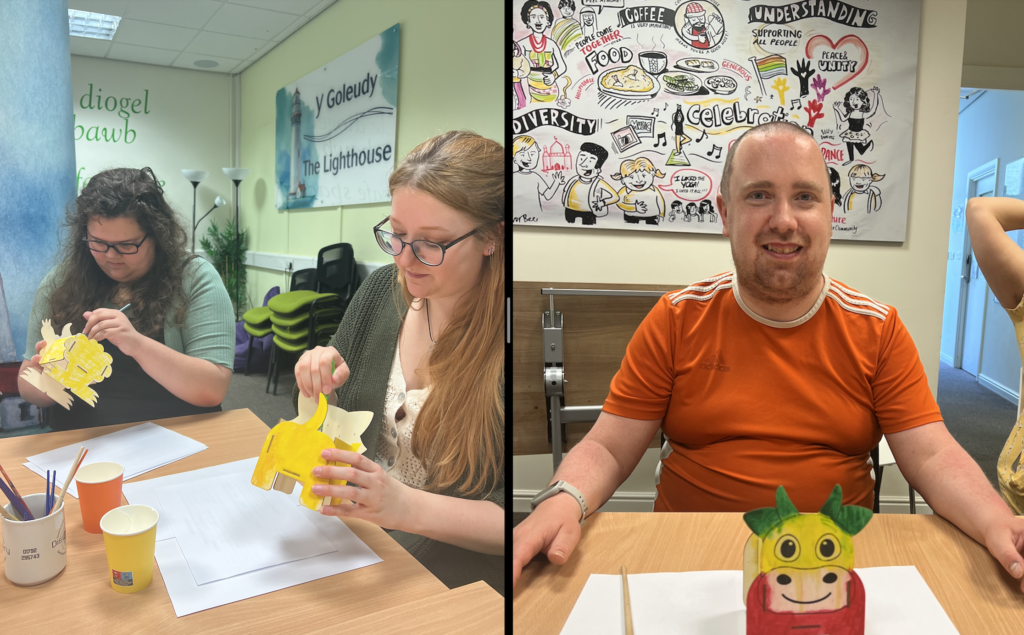Empowering Change: Volunteering with Discovery’s Social Action Group

At first glance, the Social Action Group looks like any other group of friends getting together on a regular Thursday, to brainstorm ideas for art projects and putting those ideas into action, when it is in fact a group where disabled adults and students come together and carry out different volunteering activities each week. Their mission? To make the world a better place by helping to change people’s attitudes towards those living with disabilities and create a more equal and inclusive society.
I joined the group last week for what was a fun couple of hours chatting with volunteers and participants alike, painting coats of glue onto wooden planter boxes for small herbs and plants they would use later. Passing around art supplies and allocating who was painting what, I could not easily differential the volunteers from the participants, it was clear that the Social Action Group had successfully created a supportive environment for individuals with disabilities to be included, treated equally, respected and given a seat at the table. I got a true sense that the group had broken down the social barriers people with disabilities face in the outside world. Here within the four walls of a small student space located on campus, I caught a glimpse of what belonging feels like, as laughter, chatter and the noise of busy hands easily filled the room.
I had the privilege of speaking with two participants of the group, who shared with me their perspective as adults with a disability, on how the Social Action Group has benefited their lives.
Rowan, an adult living with a disability, shared with me how important the group is to her, and how through it, she’s been able to make new friends. “I love Discovery because you make new friends and spend time with people. I’ve made a lot of friends.” Rowan’s favourite group activities are making arts and crafts, writing scripts and singing karaoke.
Adam, a regular participant of the group who joined in October, 2022 when the group first began along with Rowan, said, “It helps a lot with my mental health, having a routine. We get to meet people every week and get to get out of the house.”
When I asked Adam what was his favourite activity so far, he said making Christmas crafts like book markers, which they sold to raise money for cancer research. “My favourite activity was making book markers for charity, to make money for Cancer Research UK.”
The Social Action Group project is an amazing example of how Discovery challenges discrimination, supports people with disabilities, and enriches the lives of disadvantaged groups – the organisation’s three main aims. The Social Action Group works closely with people with disabilities through support and fostering a sense of inclusivity within Swansea. All of which sound fantastic, but what does it actually mean, and how does this benefit volunteers and participants alike?

Having volunteered for a few months with Discovery, I have witnessed first-hand how volunteering with vulnerable groups allows volunteers to gain a deeper understanding of the challenges faced by people with disabilities. As an able-bodied person, I am guilty of being unaware of my own privileges, and how my experience as an able-bodied person is incredibly different from the experience of people with disabilities. Working closely with people with disabilities, I feel like I’ve developed greater empathy, compassion, and have a heightened sense of social responsibility to challenge societal stereotypes and help to dismantle barriers that prevent full participation in society. Whether that’s through continuing to educate myself and volunteering with important projects like the Social Action Group, or helping to raise awareness within my community – there are so many things I can do to ensure people with disabilities are treated fairly, have equal participation in our society, and feel included and welcomed. As I witnessed with the Social Action Group, it was clear that volunteers were benefiting from some rather important lessons around equal opportunities and the rights of individuals with disabilities just by being a part of this wonderful project.
Jo and Ella, volunteers I met who were part of the Social Action Group, shared with me how much they have enjoyed being involved in the project. From making new friends and being able to provide support to participants of the group, to also just having fun doing arts and crafts together. So while it may seem that volunteering is mostly beneficial to participants and target groups, it’s also a valuable opportunity for volunteers to develop essential skills like effective communication, problem-solving, and adaptability, as well as cultivating empathy and compassion, challenging stereotypes to dismantle the barriers facing people with disabilities so we can create a fairer, more equal society for us all.
If you are interested in volunteering but aren’t quite sure where to start, sign up and attend a “One-Off” event where you can experience a project activity without having to commit to the project as a whole. I’ve attended a number of “One-Off” activities and met so many wonderful people through these that I highly recommend it if you’re still not quite sure what volunteering is about.
Student volunteering is a great way to both empower and support students to engage in community service and give back to the community where they reside, and is an invaluable opportunity for students’ to grow both professionally and personally as they are exposed to some of the wider issues we face in society.
Discovery is a student led charity based in Swansea which works to connect Swansea University students with Volunteering programs suitable to their interests, and are flexible for students.
Writen by Angelica Salele
